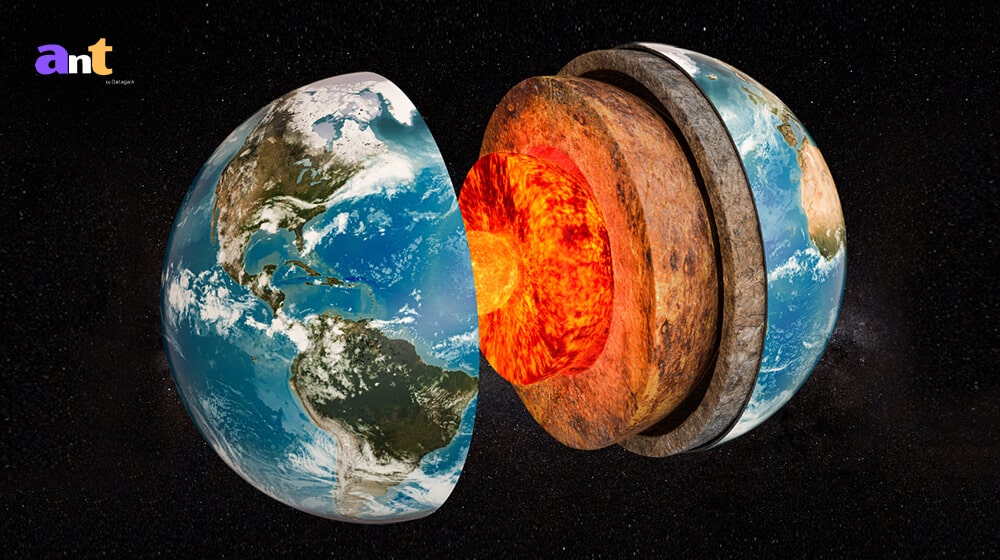
Home » Transcript Library » Earth’s core might now be spinning in the opposite direction, study finds transcript
Earth’s core might now be spinning in the opposite direction, study finds transcript
Eric Sorensen 00:00:00
Beneath the crust, below the mantle, and underneath the molten core is the hot, dense, solid inner core of our planet. And scientists now believe it rotates and it even changes direction every 60 years or so. A planet within the planet.
John Vidale 00:00:15
There’s a very strong magnetic field down there. It’s pressure and gravity and the magnetic field that all have to balance.
Eric Sorensen 00:00:23
We can’t drill straight down to the earth’s center. It’s around 3,000 kilometers through the mantle just to the outer core. But scientists at Peking University in China found that seismic waves from earthquakes showed the earth’s core rotating but also slowing down and then it stopped just over 10 years ago and it appears to be picking up speed rotating now in the other direction. So what could that mean for the magnetic forces in and around the earth?
Eric Sorensen 00:00:50
There’s a powerful but delicate balance among the magnetic forces of the sun, the earth, and our planet’s inaccessible interior. The magnetic field protects us from the sun’s radiation. We see the interaction of the solar wind and our magnetic fields in the northern lights. The study’s authors suggest the core rotation fits with the 60-70 year patterns on the earth’s surface, shifting sea levels, global mean temperatures, potentially tiny changes to the length of the day, an ebb and flow between the inner earth and the surface.
Unknown Speaker 00:01:19
It will fall to the ground.
Eric Sorensen 00:01:20
We’ve long tried to understand the forces beneath us.
Unknown Speaker 00:01:23
It will fall in this direction toward the center of the earth.
Eric Sorensen 00:01:27
And when Hollywood heard about it…
Unknown Speaker 00:01:29
The core of the earth has stopped spinning.
Eric Sorensen 00:01:30
Well, you can guess how that turns out.
Unknown Speaker 00:01:33
Microwaves will literally cook our planet.
Eric Sorensen 00:01:35
Without its internal convection, Mars lost its magnetic field, its heat and went cold. That is not happening here. But if we can predict the subtle shifts down below, we could ultimately prepare for the effects up above. Though John Vidale says much of the science remains speculative.
John Vidale 00:01:54
These mineral physics people need to explore what happens at a boundary between the liquid iron and solid iron. it’s a whole range of possibilities of things that might be happening.
Eric Sorensen 00:02:04
It will take time and new modeling to better understand what’s happening. What can be said, now that we’ve discovered that the earth’s core changes directions at regular intervals, is that apparently, that’s a good thing. Eric Sorensen, Global News, Toronto.
Copyright Disclaimer
Under Title 17 U.S.C. Section 107, allowance is made for “fair use” for purposes such as criticism, comment, news reporting, teaching, scholarship, and research. Fair use is permitted by copyright statute that might otherwise be infringing.






